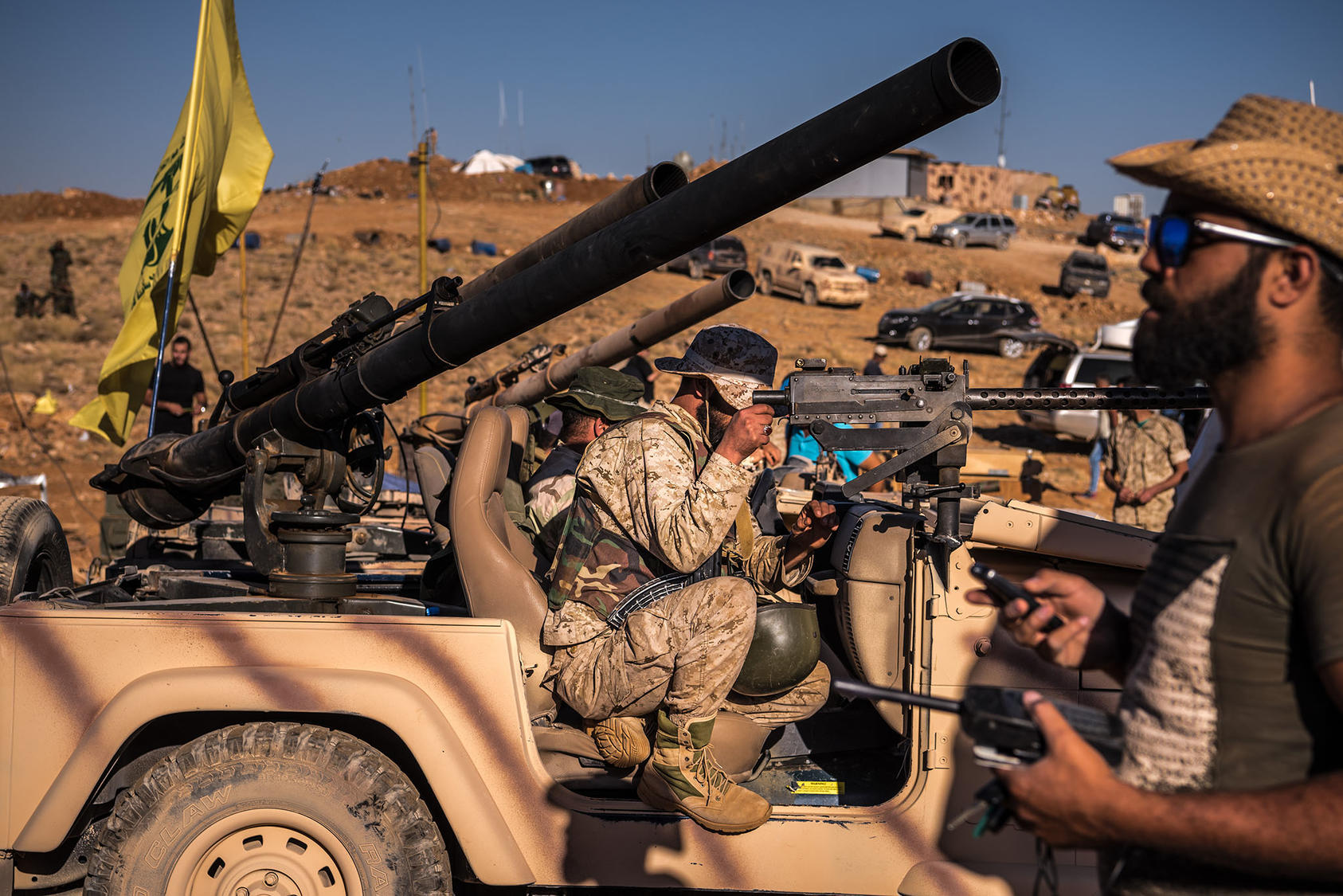How the Soleimani Strike Impacts Syria and the Fight Against ISIS
If Soleimani’s death provokes a deeper conflict between the U.S. and Iran, the resulting chaos will benefit ISIS.
Slain Iranian Quds Force commander Qassem Soleimani played a considerable role in conflicts across the Middle East. In Syria, he mobilized Shia armed groups from across the region and coordinated closely with Hezbollah to save the Assad regime. His death by an American airstrike leaves many to wonder what’s next for Iran in Syria. It has also stirred fear of a direct confrontation between Washington and Tehran at a time when concerns about an ISIS resurgence in both Iraq and Syria are already on the rise. USIP’s Mona Yacoubian looks at what, if any change, Soleimani’s death will mean for the Assad regime and what’s next in the fight against ISIS.

Iran has long backed the Assad regime. And while Iran’s military system is designed to ensure continuity, Soleimani’s influence among Syrian leaders is not easily replaced. What does his death mean for Iran’s presence in Syria? Will it change the Assad regime’s posture in anyway?
Soleimani was a key architect of Iran’s intervention in Syria dating to the early days of the conflict. In particular, he leveraged his longstanding ties to Lebanese Hezbollah leader Hassan Nasrallah, working closely with the Shia militia leader to ensure against the fall of the regime of Bashar al-Assad. Soleimani played an outsized role, engineering the insertion of thousands of Shia fighters—not only from Iran, but also from Iraq, Afghanistan, Pakistan, and of course, Lebanon. This Shia “foreign legion” was critical to rescuing the Syrian regime, bolstering its manpower when the Assad regime’s survival was on the line. Their involvement came at an enormous price to Syrian civilians. These Iranian-backed Shia militias stand accused of committing numerous war crimes and acts of brutality against civilians in Syria.
However, despite Soleimani’s strategic role, his death will not diminish Iran’s presence in Syria. Unfortunately, Soleimani’s legacy in Syria will outlive him as evidenced by the integration of some Iranian-backed armed groups into Syria’s security and military structures. These efforts are likely to continue as the regime seeks to regain control over the whole of Syria. Soleimani essentially helped lay the groundwork for a strategy that is likely to continue for months if not years.
Similarly, Soleimani’s death is not likely to impact negatively the Assad regime’s posture. In addition to support from Iran, the Assad regime relies heavily on its alliance with Russia. In recent months, certainly since Turkey’s October 2019 incursion into northeast Syria, Russia’s influence has continued to grow, making it the most influential power broker in Syria. In some ways, Soleimani’s death may have further assured Russia’s primacy in Syria, depriving Iran of a key strategist in its continuing competition with Russia for power and influence in Syria.
As the U.S. prepares for possible retaliation from Iran, the Pentagon has suspended its efforts to counter a resurgent ISIS in Iraq and Syria. How does Soleimani’s death impact the fight against ISIS, both in the short term and into the future?
Prior to last week, concerns about an ISIS resurgence in both Iraq and Syria were on the rise with increased reports of night-time raids, sleeper cells, and IED attacks. Already in the short term, the fallout from Soleimani’s death appears to have negative ramifications for the counter-ISIS campaign. Concerned about force protection, the U.S.-led Global Coalition to Defeat ISIS has announced a suspension of its operations.
Meanwhile, Iraq’s parliament has issued a nonbinding resolution calling for the United States to withdraw its forces from Iraq. Should the United States decide or be forced to withdraw its forces from Iraq, the counter-ISIS campaign would suffer a significant blow. Operations in Syria would also be adversely impacted by a U.S. pullout from Iraq. ISIS would likely fill any power vacuums opened by a precipitous U.S. withdrawal to reconstitute itself.
Over the longer term, if Soleimani’s death provokes a deeper conflict between the United States and Iran, the resulting chaos and instability in both Syria and Iraq will benefit ISIS. The extremist group thrives under such conditions: it will exploit heightened sectarianism to seek additional recruits; prey on Sunni discontent in the wake of festering political and socioeconomic ills; and move into ungoverned spaces.



